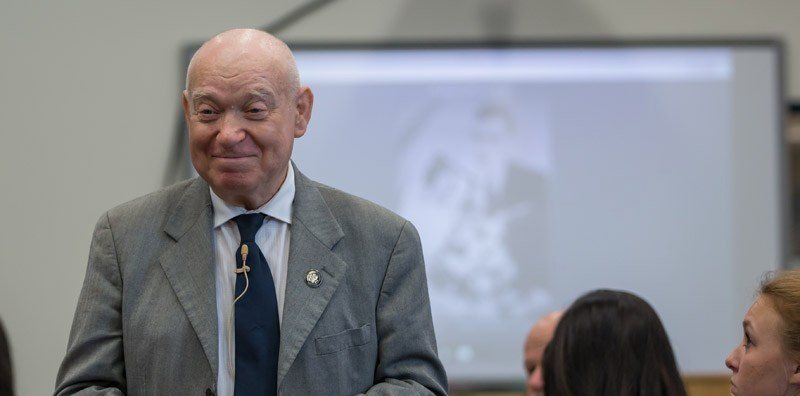Image: Vineyard Gazette
Today is International Holocaust Remembrance Day. It has been seventy-seven years since the Shoah ended, and the number of Shoah survivors is shrinking rapidly as many of them reach their nineties even turn one-hundred. In a very short amount of time, there will be nobody left to tell their stories. Tragically, those who are still with us are living in poverty.
According to the United States Census Bureau, only ten percent of adults sixty-five years of age and older are living in poverty. According to The Blue Card, a 501(c)3 non-profit organization that provides Shoah survivors financial and living assistance, an estimated one-third of the 100,000 survivors in the country live at or below the poverty line.
Survivors like Madga Rosenberg, who lost her entire family in Auschwitz in occupied Poland and now lives in Long Island, are living in poverty.
We’re dying out. In ten years, there won’t be a Holocaust survivor left.
Of the 50,000+ survivors residing in the New York Metropolitan area, 52% are considered “poor,” meaning that they are living below 150% of federal poverty guidelines or with an individual annual income fewer than 18,000 dollars, according to Selfhelp, an organization that has been helping victims of Nazi crimes since 1936.
Hanan Simhon, the vice president of the Holocaust Survivor Services at Selfhelp, says survivors from the Soviet Union have it particularly bad—eighty percent of them living in poverty.
They came here much later in their life at the fall of the Soviet Union, with no Social Security, pension or any type of supporting income for retirement.
Marsha Pearl, the executive director of the Blue Card, lists many factors as the reasons why the Shoah survivors are struggling.
They tend to be very isolated, losing their families during the war and then either did not or could not have children. Many started working in menial jobs because they did not have the language skills. Today they are in their eighties and nineties, and it is beyond difficult to make ends meet.
The victims’ troubles are not only caused by their advanced age and language barriers but medical experiments that put them at higher risk for diseases such as cancer.
Sami Steigmann spent his early childhood years in a Nazi labor camp. He was told by his father, years later, that he was subjected to various medical experiments which still cause him pain today at age seventy-eight.
I’m a proud person, I never wanted to reach out for help.
After years of struggle and “getting involved with the wrong people,” he found himself homeless. That was when he finally agreed to be recognized as a survivor and mentally disabled, receive reparations from Germany, and move into subsidized housing.
Marsha Pearl recognizes this unwillingness to step forward and accept help due to embarrassment, even when there is nothing embarrassing about it.
Many are embarrassed to be in this situation, feeling as if they’ve failed twice—not being able to save their family and now having to turn for help. People with food stamps in the grocery store are trembling and afraid that someone will see them. Many of them wait to come forward because they are too ashamed.
Today, Sami Steigmann lives in a tiny studio apartment in New York, but he now must leave his home for twenty years because the building has recently been sold. Steigmann fears he will no longer be able to volunteer as a tutor to teach students about the Holocaust.
The Blue Card, which serves 2,500 survivors nationwide, experienced a 20% increase in requests for assistance in 2016. Of those they service (77% female), 67% cannot leave their homes without aid, and 78% have trouble performing everyday activities such as getting dressed, washing, and cooking.
Selfhelp has 1,400 residents in ten affordable housing sites throughout the New York area and a waiting list of 4,000. Two-hundred fifty survivors are sitting on a waiting list in Brooklyn to be assigned to a social worker with about three to four new clients registering daily.
Hanan Simhon reminds us of one critical fact that nobody thinks about.
These are limited resources for a limited time—there won’t be new Holocaust survivors taking their place.
Personal stories and quotes: CNN
